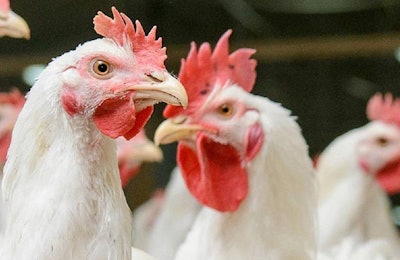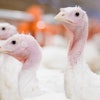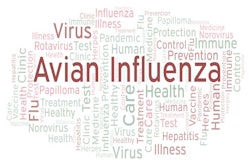
Earlier this month, the Fair Trade Commission imposed fines totaling 699 million won (KRW; US$554,000) on six of South Korea’s poultry processors, as well as the industry association.
According to the Yonhap news agency, the penalties were meted out by the antitrust regulator for fixing both prices and supplies of poultry meat. These activities concerned indigenous chickens, and covered the period 2013-2017.
Among the companies named in the report was the industry leader, Harim Co., which received a fine of KRW303 million. A further five companies will have to pay a total of KRW292 million.
Investigations by the commission also revealed the involvement of the Korean Native Chicken Association in the market collusion. This body aims to support traditional chicken production. However, it was found to have set sales prices and supplies of these chickens between 2011 and 2016. For this, it received a fine of KRW104 million from the commission.
Past market-fixing allegations
In March of this year, 16 of South Korea’s poultry companies received fines totaling almost KRW176 billion for colluding to fix prices.
One month later, the regulator imposed a fine of KRW1.2 billion on the Korea Broiler Council. According to Yonhap, the group had been setting sales prices, production and supplies of chickens to benefit its members between 2008 and 2017. Poultry companies Harim Co. and Maniker Co. were reported to be among the council’s members.
More on poultry production in South Korea
South Korea chicken production was forecast to reach 965,000 metric tons (mt) in 2022 — a year-on-year increase of 3.2%. This was according to the USDA Foreign Agricultural Service (FAS) in a report published in September of 2021.
At the time, parent stock production was increasing, chicken prices on the domestic market were rising, and sales were recovering in South Korea following the coronavirus (COVID-19) pandemic. FAS also noted that the nation’s vertically integrated chicken companies were investing in new slaughtering and processing facilities in order to increase market share.
During the winter of 2020-2021, around 29.9 million poultry in South Korea were depopulated as a result of highly pathogenic avian influenza (HPAI), according to FAS. As well as ducks, quails and ornamental birds, this figure includes almost 26 million chickens on 351 farms.
Over the following season (2021-2022), 47 outbreaks on South Korean poultry farms have directly impacted almost five million birds, according to official reports. The country’s most recent outbreak was confirmed in early April.
In 2020, official figures from South Korea put domestic chicken production (boneless) at 642,360mt. While imports amounted to 170,290mt, and 55,807mt were exported. These figures put total supply in the country at 756,843mt.
Slaughtering around 392 million birds annually puts Harim Group in the top 10 poultry producers in Asia, according to the WATTPoultry.com’s Top Poultry Companies survey. The group is the leading chicken company in South Korea. Maniker Co. slaughters 83 million birds per year.
















